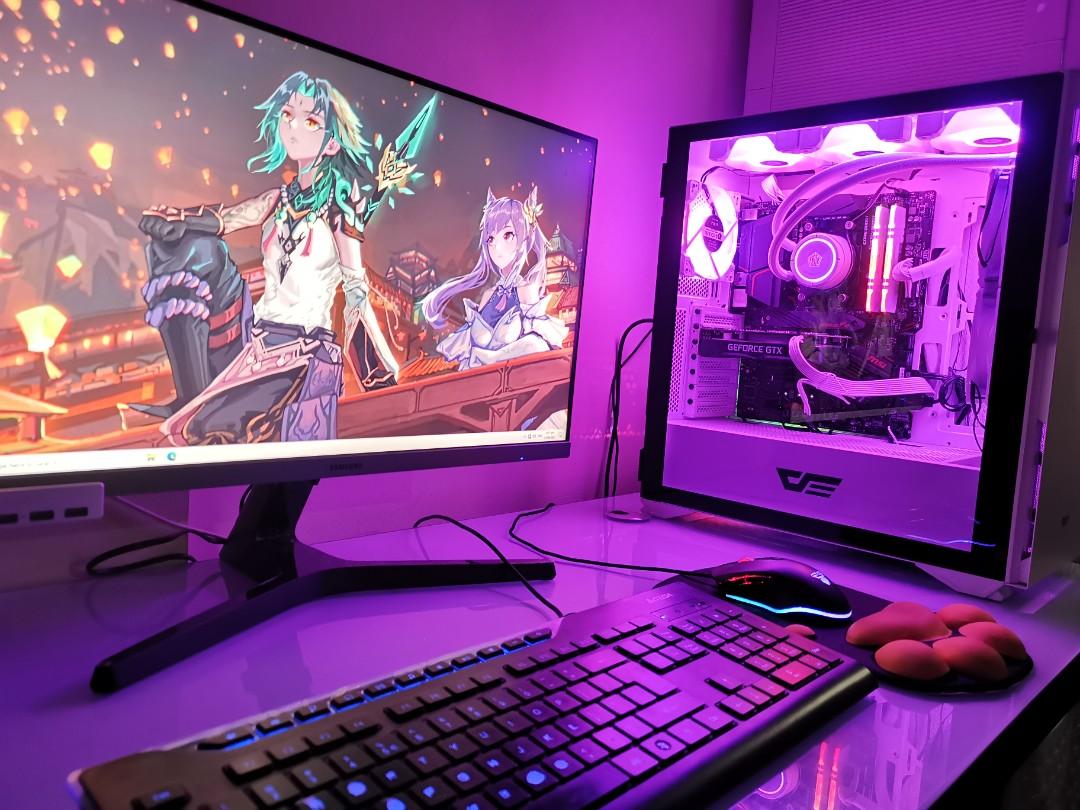
Knowing what to look for in a gaming pc is essential before making a purchase. With so many options available, choosing the right system may seem overwhelming, but it is easier than you think. This guide will walk you through the key factors to consider when buying a gaming pc to ensure you get the best performance for your needs.
What is Most Important for a Gaming PC
When deciding what to look for in a gaming PC, consider how you plan on using it. Are you chasing the highest frame rates? Do you need a PC capable of smooth streaming to your audience? Your system should reflect what drives you playstyle.
You do not need the most expensive parts to build a good gaming PC. Even a well-balanced budget gaming PC can still handle everything from indie titles to AAA hits at good framerates and resolutions. Prioritize the gaming hardware that impacts your performance most: your GPU, CPU, and RAM.
CPU (Processor)
The CPU handles multitasking, background processes, and in game logic, such as AI and physics. For most gamers, a 6-core or 8-core processor such as the Intel Core i5 or AMD Ryzen 5 offers more than enough processing power for modern games.
GPU (Graphics Card)
The right GPU is essential to your build if you want the best visuals and framerates in your games. A modern NVIDIA GeForce, AMD Radeon, or Intel ARC B-series graphics card is the right choice for crispy textures and more intensive graphics features like raytracing.
RAM (Memory)
Enough RAM can make the difference between a smooth and frustrating PC experience. With 16GB of RAM, your system should be able to handle modern games, background apps, and multitasking without slowing down. 8GB may be fine for older titles or less intense Esports-style games like League of Legends and Fortnite, but it really limits the flexibility of your system. If you are gaming, streaming, or multitasking in 2025, opt for more RAM to get the speed and stability you need. 16GB should be the minimum you want, with 32GB and more being the ideal amount for today’s computers.
Storage (SSD vs HDD)
These days, a solid state drive (SSD) is the default choice of storage for most gaming PCs. Even the smallest SSD can speed up boot times, game launches, and overall system responsiveness. Use it for your operating system and your favorite games, especially large open world games. You can expand storage with an HDD if needed.
Power Supply
Often overlooked, the power supply is the backbone of system stability. Choose a unit with the correct wattage (be sure to include a 20%-30% overhead) and that fits in your case. A low quality PSU can cause crashes, limit future upgrades, or even damage critical components.
Cooling System
A solid cooling system keeps your gaming PC running efficiently. Overheating can result in crashes or even damage to hardware. Fans are the standard option, but liquid cooling is the superior choice for long intense gaming sessions. Make sure your case has proper airflow and that your cooling solution matches your performance goals.
PC Case Size
The PC case is not just for looks – it affects airflow, component compatibility, and even your ability to upgrade. A mid tower chassis fits most full sized GPUs, offers ample airflow, and accommodates most builds. If you have limited space, consider a small form factor PC, like our EVO Mini.
Final Thoughts
Understanding what to look for in a gaming PC helps you make an informed decision and ensures your system meets your gaming needs. Prioritize the processor, GPU, RAM, storage, and PC size to get the best performance for your budget. Whether you are gaming at 1080p, 1440p, or 4K, CyberPowerPC has the right components to enhance your experience and future proof your investment in PC gaming.
Frequently Asked Questions
Shopping for a gaming PC comes with a flood of opinions, specs, and unfamiliar terms. We’ve answered the most common questions to help you find the right setup with less guesswork.
What specs should I look for in a gaming computer?
Start with a multi-core CPU, a modern GPU, 16GB of RAM, and SSD. These four elements form the foundation of a smooth, responsive gaming computer, especially when paired with a quality power supply and cooling.
What CPU is best for gaming?
A 6-core or 8-core processor from Intel (Core Ultra 5/7/9) or AMD Ryzen (5,7,9) will handle newer games with no issues. If you want the best possible gaming performance money can buy, consider the AMD Ryzen 9 9800X3D or an Intel Core i9-14900KS.
How Much RAM do I need for Gaming?
16GB to 32GB has become the standard recommendation for modern titles. It gives you enough flexibility for playing games and running multiple applications simultaneously. 8GB may still work for a basic entry level PC, but it limits overall performance.